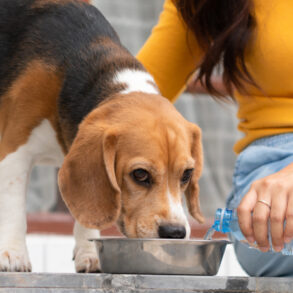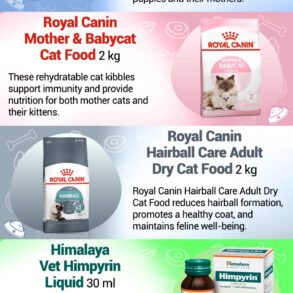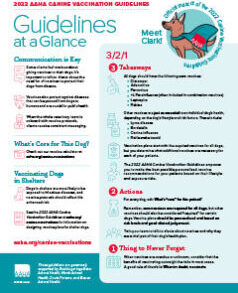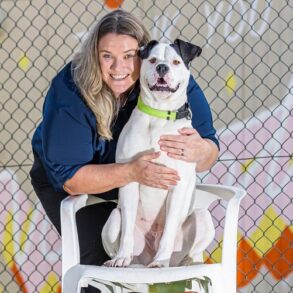
Pet lovers: Frequent veterinary treatment is crucial for both immunisations and the early detection of possible health problems. Like a preventative step, it can help you and your pet avoid major issues in the future (Image: Canva)
You bring home a small puppy, full of curiosity and enthusiasm, but did you realize that the first few months are critical for their growth? Just like us, our furry friends also require routine examinations to remain happy and healthy for the rest of their lives.
Regular veterinary checkups guarantee your puppy is headed toward becoming a healthy adult. From the energetic puppy years to the sage old years, every stage of your dog’s life has its own distinct health requirements and examination schedule.
Frequent veterinary treatment is crucial for both immunisations and the early detection of possible health problems. Like a preventative step, it can help you and your pet avoid major issues in the future.
Puppy (0-1 year)
Regular veterinary checkups are necessary to ensure healthy growth and development during the first year.
- Initial health check: Make an appointment for a comprehensive health checkup, which includes a physical examination, parasite faecal testing, and a vaccine regimen, when you first bring your puppy home (6–8 weeks old).
- Schedule of vaccinations: Core vaccinations (rabies, parvovirus, canine adenovirus, and distemper) are administered beginning at 6–8 weeks and lasting until 16–18 weeks. Depending on lifestyle, optional vaccinations might also be suggested.
- Deworming and flea/tick prevention: It’s imperative to have routine deworming treatments and to avoid fleas and ticks.
- Spaying/neutering: This procedure is usually carried out six to twelve months.
Frequency of visits: During the first four to five months, every three to four weeks; after that, as your veterinarian advises.
According to CGS Hospital for pets, “Puppies should have the following core vaccinations: rabies, parvovirus, hepatitis, parainfluenza, and distemper.” The Gurugram-based hospital also recommends deworming your dog once every 15 days till they are three months of age, once a month from 3-6 months of age, and once in three months after six months of age.
Young adult dog (1-3 years)
Your dog’s health requirements change as they get older, but routine examinations are still crucial.
- Annual health check: Consists of a comprehensive physical examination to track weight, heart, lungs, and general health.
- Vaccinations: Depending on the type, these can be given annually or every three years.
- Prevention of parasites: It is essential to prevent fleas, ticks, and heartworms all year long.
- Dental care: To avoid gum disease and plaque accumulation, routine dental examinations are crucial.
- Diet and weight monitoring: Talk about eating right and exercising to keep your weight in check.
Frequency of visits: Once a year for immunizations and regular examinations.
Story continues below Advertisement
For adult dogs, CGS Hospital also recommends administering the DHPP and rabies vaccinations once every three years after the initial booster in the first year.
Adult dog (3-7 years)
Regular examinations aid in identifying possible problems early, particularly as your dog gets closer to middle age.
- Annual exam: To keep an eye on general health, do yearly physical examinations.
- Vaccinations: Maintain regular vaccines based on vet recommendations.
- Blood work and urinalysis: Routine tests can help detect early illness indications beginning at age 5-7.
- Dental care: To preserve dental health, get yearly cleanings.
Frequency of visits: Once a year, with blood tests and urinalysis starting around 5-7 years old.
Senior dog (7+ years)
In order to monitor age-related diseases, senior dogs require more regular veterinary appointments.
- Twice-yearly exams: During these visits, a comprehensive physical examination is performed to look for symptoms of ageing.
- Blood work and urinalysis: Essential to screen for age-related conditions.
- X-rays or ultrasounds: Recommended if signs of joint problems occur.
- Dental care: Continue regular exams and cleanings to maintain oral health.
- Nutritional adjustments: Talk about dietary modifications to accommodate aging requirements.
Frequency of visits: Twice a year.
Special considerations by breed and health status
Some breeds may have unique health risks that require specialised checkups.
- Large breeds: May require screenings for hip dysplasia or heart disease.
- Small breeds: Often need extra dental care.
- Chronic conditions: Dogs with chronic health issues may need more frequent visits and specific tests.
Your pets need regular veterinary care to keep them healthy at every stage of life. Always consult your vet about your dog’s specific needs and schedule extra visits if unusual symptoms arise. By staying proactive with your dog’s health, you can enjoy many happy years together.
This post was originally published on this site be sure to check out more of their content.







































